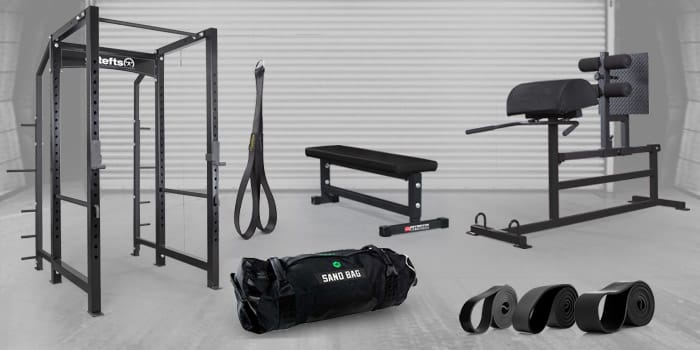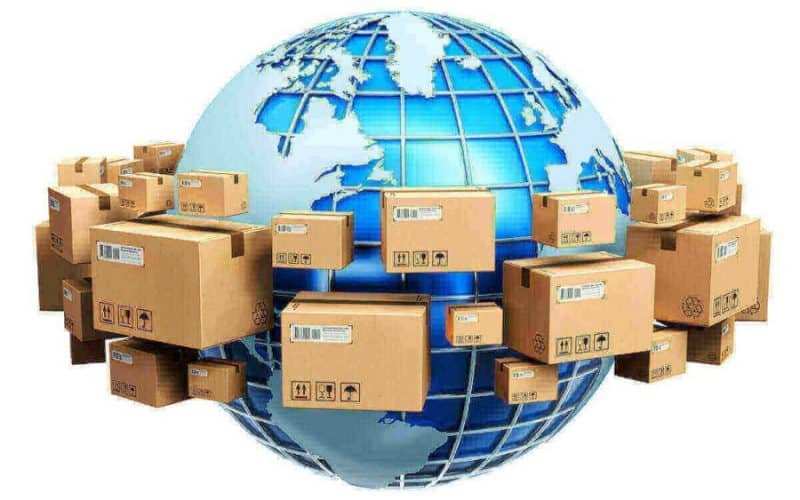Navigating the Nigerian business scene can be difficult, especially when it comes to identifying the best import prospects. With the economy’s continual changes, currency volatility, and swings in customer demand, selecting the correct products to import is critical. Over the years, I’ve learned personally the importance of identifying successful niches, and in this article, I’ll walk you through the top 13 most profitable importation businesses in Nigeria for 2024. Whether you’re an experienced entrepreneur or just starting, there’s something for everyone.
Importation enterprises have thrived in Nigeria for years, owing to considerable demand for foreign products that are not widely available locally. Nigerians are continually on the search for high-quality imported goods, including electronics and clothing. The goal is to understand what sells quickly and generates the biggest profit margins. Let’s look at these profitable importation businesses in Nigeria and how you might start making money with them.
Why Are Importation Businesses Profitable in Nigeria
Importation is one of the most profitable business sectors in Nigeria. According to Statista, Nigeria’s import value would exceed $50 billion in 2022, comprising products such as equipment, chemicals, electronics, and textiles. This is mostly driven by the desire for high-quality imported items that the domestic market cannot meet. Products originating from countries such as China, the United States, and the United Kingdom are in high demand, and entrepreneurs who capitalize on this demand can develop profitable businesses.
Importing items into Nigeria has gotten easier because to advances in logistics and e-commerce. Platforms like as Alibaba, DHgate, and Made-in-China make it simpler for Nigerians to identify and source products directly from producers at low prices, resulting in larger profit margins when sold locally.
Top 13 Most Profitable Importation Businesses in Nigeria for 2024
#1. Electronics and gadgets

- Why it’s profitable: Nigerians have a strong desire for devices including smartphones, computers, headphones, and accessories. With the growing reliance on technology, importing electronics from nations such as China and the United States can be extremely profitable.
- Profit Potential: Electronics have profit margins ranging from 20% to 40%, depending on the brand and product.
- Example: Because smartphones from brands such as Xiaomi are less expensive than locally sourced phones, importing and selling them in Nigeria can provide large profits.
#2. Clothes and Fashion Accessories

- Why it’s profitable: The Nigerian fashion industry is thriving, with a growing demand for stylish apparel and accessories from China, Turkey, and the United States. Importing high-quality commodities such as shoes, purses, and designer clothing is always profitable.
- Profit Potential: Profit margins in the fashion business can reach up to 50%, particularly for designer and luxury items. I’ve personally witnessed a surge in demand for one-of-a-kind fashion goods over the holiday season, transforming fashion into a year-round profitable business.
#3. Cosmetology and Beauty Products

- Why it’s profitable: Nigerians spend billions of naira on beauty items. Foreign beauty brands such as MAC, Fenty Beauty, and Kylie Cosmetics are becoming increasingly popular.
- Profit potential: Importing cosmetics can generate a profit margin of 25% to 45%, particularly with premium beauty items.
- Example: You can import authentic skincare and beauty products from the United States or South Korea and resell them at a premium in Nigeria, where they are in high demand.
#4. Health and fitness products

- Why it’s profitable: As the number of health-conscious consumers grows, so does the demand for fitness equipment, supplements, and wellness items.
- Profit potential: Profit margins for importers might range from 30% to 50%, depending on the goods.
- Example: Gym equipment, protein powders, and health supplements imported from countries such as the United States or China are popular and profitable.
#5. Automobile spare parts

- Why it’s profitable: With millions of cars on Nigerian roads, the demand for automotive replacement parts is constantly increasing. Importing spare parts for brands like Toyota, Honda, and Hyundai may be quite profitable.
- Profit potential: Spare components have a profit margin of 25% to 35%.
- Example: Given Nigeria’s enormous market, importing engine components, tires, and body parts from nations such as Japan or Germany can generate high returns.
#6. Furniture and home decor

- Why it’s profitable: Nigeria’s real estate boom has produced a big demand for high-quality home furnishings. Importing elegant furniture, lighting, and home accessories is a profitable business, particularly for Nigerians in the middle and higher classes.
- Profit potential: Furniture importation can result in margins of up to 60%, especially for luxury items.
- Example: With the current desire for modern home design, sourcing contemporary furniture from Turkey or Italy might be extremely successful.
#7. Solar Panels & Renewable Energy Products

- Why it’s profitable: With Nigeria’s continuous electricity issues, demand for solar panels, inverters, and batteries is increasing. Many households and businesses are adopting renewable energy sources.
- Profit Potential: Profit margins for solar products range from 30% to 50%.
- Example: Importing solar panels from China or Germany and selling them to businesses and consumers seeking alternative energy options can be quite profitable.
#8. Kitchen Appliances

- Why it’s profitable: Nigerian households and companies are continually upgrading their kitchens, resulting in a need for high-quality kitchen appliances including microwaves, blenders, and refrigerators.
- Profit Potential: Profit margins for kitchen equipment range from 20% to 40%.
- Example: Importing branded kitchen appliances from nations such as China or South Korea can generate substantial profits, particularly in urban regions.
#9. Baby products

- Why it’s profitable: Nigeria has a vast market for baby products such as clothing, diapers, strollers, and toys. Parents are constantly looking for high-quality international products.
- Profit potential: The profit margin for baby items ranges from 20% to 35%.
- As an example, sourcing baby apparel and strollers from the United States or the United Kingdom might be a profitable endeavor due to the ongoing demand from new parents.
#10. Food and Beverage

- Why it’s profitable: Imported food items such as canned foods, beverages, and snacks are in great demand, particularly among Nigerian middle- and upper-class consumers who prefer foreign brands.
- Profit potential: Food importation can yield profit margins of 15% to 25%.
- Example: Importing specialty delicacies from the United States, United Kingdom, or Italy, such as pasta, sauces, or chocolates, can be quite profitable, especially during the holidays.
#11. Pharmaceutical products

- Why it’s profitable: Nigeria’s healthcare sector is heavily reliant on foreign pharmaceuticals. With the proper licensing, importing medical medications and equipment can be extremely profitable.
- Profit Potential: Pharmaceutical imports can provide profit margins of 30% to 45%.
- Example: Given Nigeria’s persistent health difficulties, importing drugs from India or China to supply hospitals and pharmacies is a lucrative business.
#12. Wristwatches & Jewelry

- Why it’s profitable: Nigerians value luxury and fashion, and wristwatches and jewelry are no exception. Importing brand watches and gold or silver jewelry is a profitable business.
- Profit potential: Jewelry and luxury timepieces offer profit margins of 25% to 50%.
- Example: Importing wristwatches from companies such as Rolex, Casio, or Omega from the United States or Switzerland can yield large returns, particularly in the premium market.
#13. Educational materials

- Why it’s profitable: Nigeria’s emphasis on education means that imported educational products such as textbooks, lab equipment, and school supplies are always in high demand.
- Profit potential: Educational products can provide profit margins of 20% to 35%.
- Example: Importing school materials and textbooks from the United States or the United Kingdom can be profitable, particularly for private schools and organizations.
How Templates Can Help You Manage Your Importation Business
Keeping track of your inventory, profit margins, and suppliers can be challenging. A simple template will help you manage these facts more effectively, ensuring that your importing business operates smoothly.
The Importation Business Management Template:
| Product Type | Source Country | Import Cost (₦) | Selling Price (₦) | Shipping Duration | Profit Margin (%) |
|---|---|---|---|---|---|
| Fashion Accessories | China | ₦50,000 | ₦100,000 | 2 weeks | 100% |
| Electronics | USA | ₦150,000 | ₦250,000 | 3 weeks | 67% |
| Beauty Products | South Korea | ₦70,000 | ₦140,000 | 1 month | 100% |
| Home Appliances | China | ₦200,000 | ₦350,000 | 2-3 weeks | 75% |
| Health Supplements | India | ₦60,000 | ₦120,000 | 1 month | 100% |
This template keeps you organized by letting you know exactly how much profit you’re earning on each product and which suppliers are offering the greatest deals.
How Do I Source Products for My Import Business?
Sourcing products is one of the most important phases in establishing a thriving import business. Finding dependable suppliers, guaranteeing product quality, and negotiating excellent agreements are critical to success. Whether you’re new to the business or want to grow, efficiently sourcing products can mean the difference between profit and loss. The tactics outlined below have been proven to help you source products for your Nigerian importation business.
#1. Use reputable online marketplaces.
Global internet marketplaces are among the most simple and convenient ways to source things for importation. These platforms connect you directly to suppliers and manufacturers, allowing you to explore products, negotiate prices, and place orders from the convenience of your own home.
- Alibaba: Alibaba, one of the major e-commerce platforms, sells a wide variety of products at wholesale costs. You may buy gadgets, apparel, and beauty products straight from Chinese producers. The platform offers a trade assurance scheme to safeguard buyers by guaranteeing that suppliers execute their promises.
Tip: Always check for suppliers with a Gold Supplier certification and good ratings to ensure you’re working with trustworthy merchants. - DHgate: Another popular platform for sourcing Chinese products is DHgate. It is recognized for delivering low costs on lesser quantities, which is excellent if you are just starting and do not want to buy in bulk.
- Made-in-China: This platform specializes in wholesale and manufacturing, with products spanning numerous categories such as furniture, electronics, and health products. It is an excellent choice for individuals seeking high-quality merchandise.
Tip: Use the Request for Quotation (RFQ) feature on these platforms to obtain competitive bids from numerous providers.
#2. Work directly with manufacturers
Working directly with manufacturers can provide more control over product quality and cost. This allows you to customize products and perhaps negotiate better pricing, which is very useful if you’re importing in bulk. You can build long-term relationships with manufacturers who provide private labeling or bulk buying at reduced prices.
How to Find Manufacturers:
- Use directories such as Alibaba or Global Sources to look for manufacturers who specialize in your product category. Attend trade fairs or shows in China, Turkey, or India to meet manufacturers in person.
- Negotiate: Don’t be afraid to negotiate. Manufacturers are frequently eager to negotiate lower prices for long-term partnerships or large orders.
#3. Leverage Sourcing Agents
If negotiating the difficulties of sourcing from foreign countries feels onerous, you can employ a sourcing agent to do the work for you. A sourcing agent operates as a liaison between you and the supplier, assisting you in finding dependable products, negotiating costs, and ensuring quality control.
The benefits of Using a Sourcing Agent:
- They have extensive industry knowledge and can recommend the best providers for your requirements.
- They conduct product inspections and quality checks to guarantee that the goods fulfill your standards before being transported to Nigeria.
- They may assist with logistics, such as shipping and customs clearance, making the importation process more efficient.
Tip: Always conduct research and collaborate with reliable sourcing agents who have experience in your sector.
#4. Attend international trade fairs.
Trade fairs provide a wonderful opportunity to meet suppliers and manufacturers in person. These events allow you to examine the products firsthand, judge quality, and build confidence with the vendors.
- Popular Trade Fairs:
- Canton Fair (China): This is one of the world’s largest trade fairs, held biannually in Guangzhou. It spans several industries, including electronics, household appliances, and fashion.
- Hong Kong Electronics Fair: This twice-yearly event in Hong Kong is ideal for sourcing electronics and gadgets.
- Cosmoprof Worldwide (Italy): This is an essential event for entrepreneurs in the cosmetics and beauty industries.
Tip: Attending trade fairs demands a major expenditure in travel, but it may be worthwhile if you want to import on a larger scale.
#5. Join Importation Groups & Communities
Joining importation groups, especially on social media platforms such as Facebook and WhatsApp, can help you connect with other importers, learn about the best suppliers, and stay up to date on market developments. These forums frequently provide suggestions for dependable suppliers as well as information for navigating the importation procedure.
- Facebook Groups: Look for import and export groups dedicated particularly to Nigerian entrepreneurs. You will find useful tools, such as contact information for reputable suppliers and shipping agents.
- WhatsApp Groups: Many successful importers maintain WhatsApp groups where they share useful information about sourcing products and negotiating the best deals.
#6. Utilize dropshipping models.
Dropshipping is a great solution for enterprises that do not want to manage inventory directly. In this arrangement, you do not have to buy the things up front. Instead, you display the products on your platform or social media page, and when a consumer places an order, you purchase the product from a supplier and ship it directly to the customer.
- Dropshipping Platforms: You may find dropshipping products on platforms such as AliExpress and SaleHoo. These platforms enable you to begin selling without the necessity for big purchases.
- Tip: Dropshipping costs little capital to get started, but it’s critical to select suppliers who can deliver products quickly and maintain product quality, as your reputation depends on it.
Conclusion
Sourcing the correct products for your importation business is critical to increasing revenues and creating a successful operation. Using reliable online platforms, building direct relationships with manufacturers, or working with sourcing brokers can help you secure a consistent supply of high-quality items that satisfy market demands.
Are you ready to begin sourcing profitable products for your import business in 2024?
- Top 10 Most Profitable Businesses in Nigeria with Low Capital in 2024: A Practical Guide
- Small business ideas list: The top 10 (+ free tips)
- Businesses You Can Start With 100k
- 13+ Business-to-Business (B2B) Ideas to Start in Nigeria
- 11 Dropshipping Business Ideas to Try in 2024






